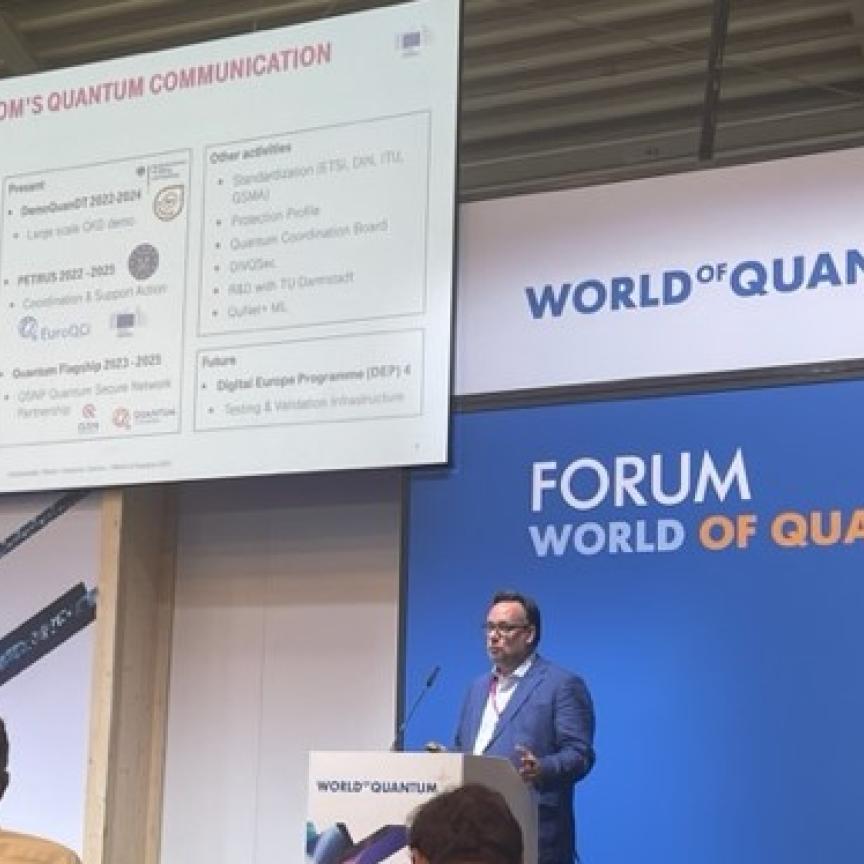To much fanfare, Nokia has unveiled what it claims is the industry’s first true petabit-class routing platform, powered by a new network processor chip that is six times faster than its predecessor.
Broadcast in 360-degree video around the world, the launch event in San Francisco marked Nokia’s biggest product introduction in recent years.
Nokia’s new technology has been designed for cloud-scale and large telco customers, to help them manage the anticipated data deluge over the next five years. Nokia Bell Labs forecasts IP traffic will more than double in that time frame, reaching 330 exabytes a month by 2022. That’s a compound annual growth rate of 25 per cent. Peak data rates will grow even faster, at nearly 40 per cent annually.
To handle this traffic, Nokia is introducing the 7750 Service Router (SR)-s series, which provides what the company claims is the industry's highest-density routing platform. The single-shelf Nokia 7750 SR-14s supports a 144Tb/s configuration and can scale up to 288Tb/s in capacity.
In addition, the company is introducing a petabit-class core router, the new Nokia 7950 Extensible Routing System (XRS)-XC. It scales to 576Tb/s in a single system through chassis extension, without requiring separate switching shelves.
“This is not a marketing trick; this is the first real petabit system that fits in a reasonably small footprint that's easy to deploy that actually does move a half petabit of traffic,” stated Basil Alwan, head of Nokia’s IP and optical networks (ION) business group.
Even though it seems hard to imagine the need for such massive capacity, it will be here surprisingly soon. “Every time we bring out a new generation, the scale seems high, but then a few years later we’re looking at it and wondering how we got here,” Alwan said. When a core routing system is deployed, it is expected to stay in place for five to seven years; that’s an incredibly long time in a world of exponential traffic growth.
It’s not only about building the biggest systems, though that’s the headliner. Nokia is building new routers in “a bunch of sizes” while also making the FP4 silicon available for its current platforms, giving customers the opportunity to expand the capacity of their installed routers without major disruption.
The real benefits are the improvements in cost and performance, along with all the other pieces – the security, the analytics and a strong control plane – that come with the new technology generation, Alwan comments.
Nokia’s new FP4 silicon features a network processor capable of moving 2.4Tb/s of data – a major step up from the previous chip at 400Gb/s – and the first capable of handling terabit IP flows.
“We want a terabit link as soon as we can, and this platform is going to deliver on that,” commented Neil McRae, BT’s chief network architect, during the live broadcast.
FP4 is the result of years of research and engineering, Nokia states. The design delivers many architectural innovations, including novel Nokia-invented intelligent memory, that enhance performance and efficiency while minimising package size. The chip has been crafted in 16nm FinFET technology, skipping a couple of silicon technology generations along the way, and includes embedded SerDes from Broadcom.
Frank Ostojic, senior vice president and general manager, ASIC products division, Broadcom, commented: “Nokia is setting the pace with their FP4 network processor. When it comes to the highest levels of integration and use of cutting edge silicon technologies, including 16nm finFET Plus process technology, Broadcom's industry-leading embedded SerDes, and advanced packaging, Nokia is charting a course that others will have to follow.”
Into the FP4, Nokia has embedded enhanced packet intelligence and control technology that will – when combined with its Deepfield IP network analytics – maximise efficiency while helping to combat security threats. Distributed denial of service (DDoS) attacks are growing in number and impact each year, the company points out, with more than 10 million attacks expected in 2017, according to Deloitte Global's TMT predictions. Routers can be instrumental in helping to detect and defend against such attacks.
Nokia will begin shipping products based on the new silicon in the fourth quarter of 2017 and customers can’t wait to get their hands on it.
“Let’s hope it’s [shipping] to one of our labs because we want to be first,” said BT’s Neil McRae.
Daniel Melzer, CTO for DE-CIX, is also keen. “As the world's leading internet exchange operator, DE-CIX values Nokia's multi-terabit FP4 silicon innovation that drives best-in-class capacity, density and efficiency in 7950 XRS routing platforms,” he said via a press release. “DE-CIX continues its partnership with Nokia to deploy the world's biggest and most capable routers at the heart of our exchange. We look forward to being among the very first to deploy the new systems later this year.”

